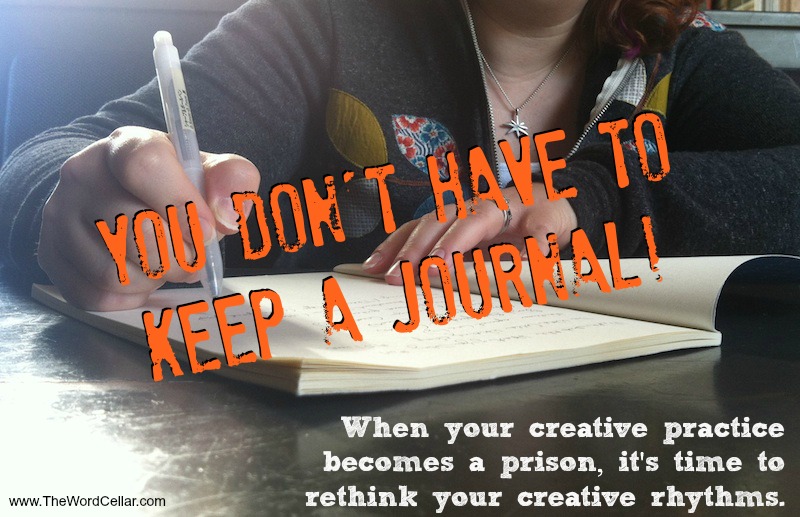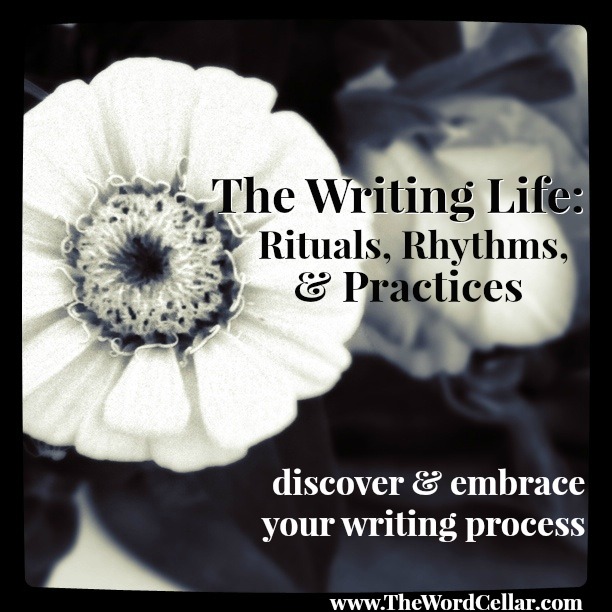You Don't Have to Keep a Journal!
 Thursday, May 22, 2014 at 9:30PM
Thursday, May 22, 2014 at 9:30PM 
You don't have to keep a journal.
You don't have to write "morning pages."
You don't have to fill a notebook in a month.
If these things don't support your writing life, you don't have to do them.
How would it feel to let go of these things?
* * *
During a coaching call on Skype this week, a writer told me that after she finishes writing in her journal for the day, she often has little energy or interest left over to work on her fiction.
I asked her if she likes to write in her journal. I saw a look of puzzlement come over her face. "That's a good question," she said slowly. She thought about it for a moment and then admitted that no, she doesn't really love writing in her journal.
"So, what if you just stopped?" I asked her. "What if you just let that go?"
A different kind of puzzlement came over her face. This was the kind of puzzlement mixed with hope and possibility, the kind that says, Really? I could do that?!
Yes! You could do that.
When your creative practice becomes a prison, it's time to rethink your creative rhythms.
You can let go of the "must-haves" and "should-dos" of being a writer if they don't support and nourish your writing life.
You can let go of the myth of the "real writer."
This is a theme that comes up again and again with my students and my coaching clients. Your writing life and practices don't have to look like anyone else's. Creating a vibrant writing life means figuring out what works and letting go of the rest.
Personally, writing in a journal is sometimes good for my writing life, and sometimes not. It often serves as a way for me to quiet my monkey mind, as a place to dump my fears and worries, or as a practice to check-in with myself and reconnect with what I want to create. But at other times, it ends up taking the place of the writing I really want to be doing that day, and I end up feeling just like my client does: too drained to write anything else.
Sometimes journaling enables me to write more, and sometimes it gets in the way of my writing.
My responsibility is to figure out what I need on any given day to best support my writing life (and all the parts of my life). Maybe I need to journal. Maybe I need to work on my book. Maybe I need to blog. Maybe I need to do all of those. Or maybe I need to go for a walk and let my mind meander.
No creative practice is necessarily good or bad on its own. There's not a right way and a wrong way to create. As writers and artists, we need to build lives that support and inspire our work.
Go ahead: Do what works. Let the rest go. Get out of jail free.
 The Writing Life: Rituals, Rhythms, & Practices
The Writing Life: Rituals, Rhythms, & Practices
(online class, with ebook & community)
Next session: June 30 - July 25, 2014
In this online class you'll discover and embrace YOUR creative process. Find out what works for you and your writing. Unravel the misconceptions and myths of what being a "Real Writer" looks like. Figure out what it will take for you to write more. (And have a lot more fun while writing!) Registration is open.
 writing,
writing,  writing life,
writing life,  writing tips
writing tips 

Reader Comments (3)
I self-published my first book "Butterflies and Angels" A story of a Survivor's strength, inspirations and will to live. It came out a little shorter than I thought it would but the message is still there.
But the difficult writing came as I tried to put my journal together from the beginning to end. Still keep a journal but notice I am not writing in it as much as I did the first on.